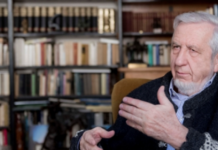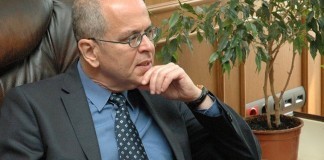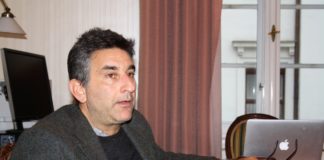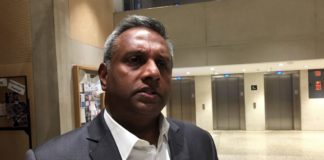Címke: interview
You can criticize certain people, as long as it is not...
We should distinguish between legitimate criticism and stereotypes that may create a reaction, which is of concern, says Israeli Ambassador to Hungary, Yossi Amrani...
“If people lose confidence in a democracy, then we don’t have...
It is not a democracy, where rules don’t apply to the wealthiest citizens, says Dean Starkman, an editor of Paradise Papers, the last wave...
“The Hungarian government should at least be saying: We are so...
The Hungarian government should be ashamed of its treatment of the refugees and not proud of it, says Salil Shetty, Secretary General of Amnesty...





















